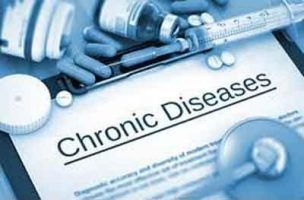- Home
- Editorial
- News
- Practice Guidelines
- Anesthesiology Guidelines
- Cancer Guidelines
- Cardiac Sciences Guidelines
- Critical Care Guidelines
- Dentistry Guidelines
- Dermatology Guidelines
- Diabetes and Endo Guidelines
- Diagnostics Guidelines
- ENT Guidelines
- Featured Practice Guidelines
- Gastroenterology Guidelines
- Geriatrics Guidelines
- Medicine Guidelines
- Nephrology Guidelines
- Neurosciences Guidelines
- Obs and Gynae Guidelines
- Ophthalmology Guidelines
- Orthopaedics Guidelines
- Paediatrics Guidelines
- Psychiatry Guidelines
- Pulmonology Guidelines
- Radiology Guidelines
- Surgery Guidelines
- Urology Guidelines
Lab-on-a-chip technology can improve chronic disease diagnoses

Researchers have developed a breakthrough lab-on-a-chip technology that reveals how human cells communicate, opening path to new treatments for cancer and autoimmune disorders.
The researchers built a miniature optofluidic biosensor that allows scientists to isolate single cells, analyse them in real time over at least 12 hours and observe their complex signalling behavior without disturbing their environment.
Single cell analysis holds great promise for developing new treatments for diseases but a lack of effective analysis technologies was holding back research in the field, said Arnan Mitchell, Professor at the RMIT University in Australia's Melbourne.
The new biosensor is "a powerful new tool that will give us a deeper fundamental understanding of cell communication and behavior. These insights will open the way to develop radically new methods for diagnosing and treating disease", Mitchell said.
Human cells communicate that something is wrong in complex and dynamic ways, producing various chemical substances that signal to other cells what they need to do.
Understanding how individual cells interact and communicate is critical to developing new therapies for serious diseases, to better harness the power of the body's own immune system or recisely target defective cells, the researchers said.
For the study, published in the journal Small, the team demonstrated how the technology can be used to examine the secretion of cytokines from single lymphoma cells.
Cytokines are small proteins produced by a broad range of cells to communicate to other cells, and they are known to play an important role in responses to infection, immune disorders, inflammation, sepsis and cancer.
The study found the lymphoma cells produced cytokine in different ways, unique to each cell, enabling researchers to determine each cell's "secretion fingerprints".
"If we can build up a clear picture of this behavior, this would help us sort good cells from bad and enable us to one day develop treatments that precisely target just those bad cells," Mitchell said.
The researchers built a miniature optofluidic biosensor that allows scientists to isolate single cells, analyse them in real time over at least 12 hours and observe their complex signalling behavior without disturbing their environment.
Single cell analysis holds great promise for developing new treatments for diseases but a lack of effective analysis technologies was holding back research in the field, said Arnan Mitchell, Professor at the RMIT University in Australia's Melbourne.
The new biosensor is "a powerful new tool that will give us a deeper fundamental understanding of cell communication and behavior. These insights will open the way to develop radically new methods for diagnosing and treating disease", Mitchell said.
Human cells communicate that something is wrong in complex and dynamic ways, producing various chemical substances that signal to other cells what they need to do.
Understanding how individual cells interact and communicate is critical to developing new therapies for serious diseases, to better harness the power of the body's own immune system or recisely target defective cells, the researchers said.
For the study, published in the journal Small, the team demonstrated how the technology can be used to examine the secretion of cytokines from single lymphoma cells.
Cytokines are small proteins produced by a broad range of cells to communicate to other cells, and they are known to play an important role in responses to infection, immune disorders, inflammation, sepsis and cancer.
The study found the lymphoma cells produced cytokine in different ways, unique to each cell, enabling researchers to determine each cell's "secretion fingerprints".
"If we can build up a clear picture of this behavior, this would help us sort good cells from bad and enable us to one day develop treatments that precisely target just those bad cells," Mitchell said.
cancerchronic diseasecytokinesdiagnoseshuman cellsimmune systemlymphoma cellsoptofluidic biosensorsepsis
Source : press releaseNext Story
NO DATA FOUND

Disclaimer: This site is primarily intended for healthcare professionals. Any content/information on this website does not replace the advice of medical and/or health professionals and should not be construed as medical/diagnostic advice/endorsement or prescription. Use of this site is subject to our terms of use, privacy policy, advertisement policy. © 2020 Minerva Medical Treatment Pvt Ltd